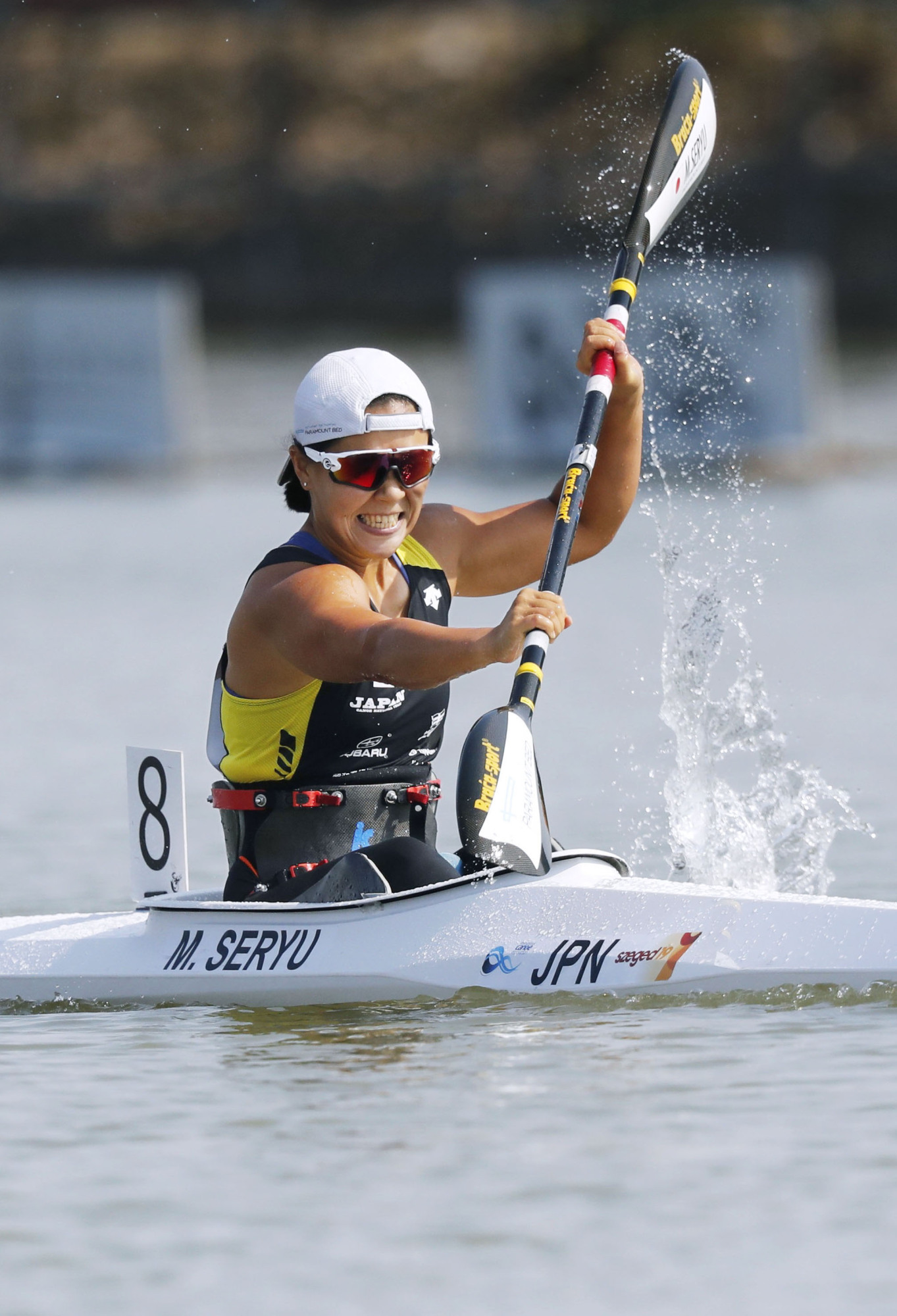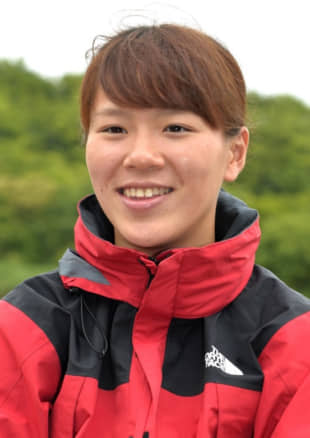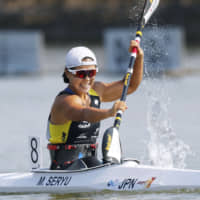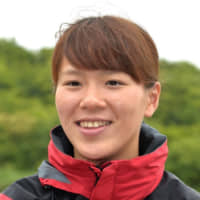Canoeist Monika Seryu is determined to excel at the 2020 Paralympics next year, believing a strong performance will not only give hope to people with disabilities but also help change perceptions and make Japanese society better for all.
Seryu, aiming for a medal at the Summer Games, believes the legacy of the Paralympics, driven in large part by those who share their inspirational and memorable experiences, will break down long-standing social barriers in the host country.
"I personally think those impressions grow rather stronger throughout time," she said, based on her own "life-changing experience" at the 2016 Rio Paralympics with the world's top disabled athletes, who seemed more confident and happy with their lives while competing on the world stage.
"If people's minds are changed, society will change as well," Seryu said in a recent interview in Tokyo after giving a presentation at the Swedish Embassy during an event related to the games.
Seryu, a 21-year-old student at the University of Tsukuba, learned in her adaptive sports class that an important mission of Paralympians is to convey their experiences abroad to people with disabilities in Japan.
Since then, she has been trying to show people with disabilities, including those not active in sports, what they can achieve by sharing her activities on social media, including skydiving, mountain climbing, bicycling and cross-country skiing.
"I hope they can live their lives with more confidence," Seryu said.
Born in Tokyo on Nov. 17, 1997, Seryu was active in sports at a young age and joined the canoeing club in junior high school. But an accident in a physical education class in her first year of high school left her paraplegic.
The accident did not stop her from pursuing her passion for canoeing, however, and after about a year of intense rehabilitation she made a comeback and entered the ICF Paracanoe World Championships.
"I had to start over by practicing falling into the water and escaping from a capsized canoe without drowning at the swimming pool of an elementary school," Seryu said, recalling her rehabilitation regimen.
Then, with just two years' experience in competitive paracanoeing, Seryu made her Paralympic debut in Rio de Janeiro in 2016.
After finishing eighth in Rio, Seryu got a chance to train in Hokkaido with alpine skier Akira Kano, a three-time Paralympic gold medalist. She then realized she had been unconsciously putting a limit on her abilities.
"Until the Rio Games, I was thinking I could do only this much because I can't use my abdominal and back muscles," she said.
Pointing to the evolution of Paralympic sports and the growing competitiveness, Seryu said athletes can’t win on the world stage any longer simply by maximizing the functions they were left with.
"Now, we have to train by imagining our lost functions are still there," she said, explaining that training paralyzed parts of the body improves coordination.

After adopting the new training method, Seryu finished fifth at the paracanoe championships in August and earned a recommendation for a spot in the 2020 Games.
Through her travels and contests, Seryu has noticed differences in "barrier-free" accessibility in Japan and other advanced countries. While many facilities abroad give people with disabilities autonomy, she realized that many in Japan are accessible by wheelchair only with assistance.
"Abroad, you ride and get off a bus by yourself, while in Japan, it is difficult for us to do many things without any assistance," she said, adding that many Japanese facilities may have been designed that way "because we have so many elderly people."
Swedish Ambassador to Japan Pereric Hogberg said the disparity between Japan and his country appeared to stem from differing social values.
"Maybe it's because Sweden is quite an individualistic society. It's not about (being) collective," Hogberg said.
In Sweden, Hogberg said, there is more emphasis on what each individual wants to do in life and what rights or possibilities they have, with each person's effort equally emphasized.
"You should still have the same possibility to be your own master of your life" even if you have a disability, he said.
"I fully understand and respect it's a beautiful thing to help, but sometimes we all know if you try to help a person too much, it does not help that person," he said, adding that both countries are going in the right direction despite the differing methods.
While Seryu thinks access to buildings and transportation is far more advanced in Japan, she worries Japan's mindset toward people like her may not be on the same level.
Seryu said she feels many people are still trying to figure out the right distance to maintain with people with disabilities, wondering when it is proper to help and in what situation.
"I hope the Paralympics and Olympics will become an opportunity for Japanese people to get the courage to initiate conversations, then we can tell them 'thank you,' or 'thanks, but we can do it by ourselves.'"
Looking to the future, Seryu hopes to see further improvement in accessibility, just not at the expense of people caring for and helping each other out.
"I think we still need communication to support each other in our society," she said.





